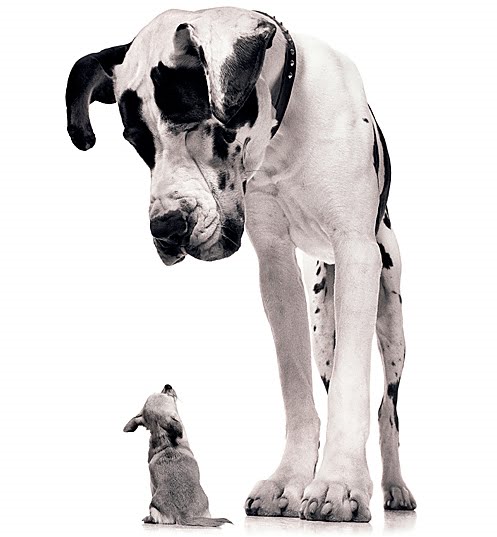This Matter of Size – Why Small Agencies Do It Better
Here’s one thing you can be certain of when evaluating bigger agencies versus smaller: whilst bigger might not be better – it will definitely be more expensive. A larger agency will have more people and services under one roof – all contributing to larger overheads, rent and salaries that you as the client will be paying for within the hourly rate.
But will those extra concrete walls, employees and software licenses add up to greater strategic and creative excellence? No. Because size has nothing to do with such things. Bigger does not equal better.
The challenge for agencies is that bigger often equals hierarchy and bureaucracy – which can smother innovation and efficacy. Smaller agency culture often better supports individuals and team collaboration; so that the passion and creativity that fuels excellence flows freely. Small agencies also tend to have courageous leaders and individuals who have a personal stake in the business, naturally generating dynamic and self-motivated teamwork and delivering the highest standards in creativity, strategy and client servicing. As a client you’ll feel the benefits of this mindset.
The CW team is a mix of former large agency and client side folk, now loving the smaller agency experience. We still provide big agency know how but for less dollar and with more agility. CW isn’t an ‘oil tanker’ of an agency that needs time to respond and turn. We captain a sailboat – a nimble, efficient and alert vessel that provides an inspiring environment for us to work within. There are no complex eco-systems holding back creativity and productivity. Departmental silos and internal politics do not hinder us. No client feels under-serviced or pushed through formula approaches. If we want to over service clients we can and frequently do.
Big agencies sometimes win out over smaller ones because of the ‘everything under one roof’ perceived advantage. But this is a fallacy. Small agencies adopt technology, contemporary business practice and collaborative agency partnerships and achieve this in the same way a larger agency would. Full marketing integration is ‘methodology’ not ‘architecture’.
So how do brands choose between the responsive small agencies versus the do-it-all eco-systems of larger agencies? Which is more creative? Which is better value? Which feels better to work with?
Your KEY question always has to be “Who will be working on my business?” At the end of the day, after the presentations that won you over are a dim memory, the day-to-day stuff is what your experience and results will be made up of.
“I’ll be personally involved” may translate as ‘far in the background’ and with no hands on management.
“The team you see before you will manage your account” may only be so until contracts are signed and the first three months are dealt with. Then new, junior faces slip in.
With small agencies the founder’s influence will be close to hand and felt. They may work on your business. Either way they will be keeping an eagle eye on your business – reducing the likelihood of it being fielded out to an intern or team member that was nowhere to be seen or heard through the big-agency pitch process; when the stars of the agency were brought out for you.
All things considered though, it’s fair to say small can be great AND big can be great. Both can deliver creative and strategic excellence. Ultimately that is generated from talented individuals and inspiring agency culture; which can exist in small and large agencies. But right here, right now, CW is making the argument for why small may be better. So we’ll leave you with one last thought on this matter of size and relative impact:
‘If you think you can be too small to make an impact, try sleeping with a mosquito.’




Leave a Reply